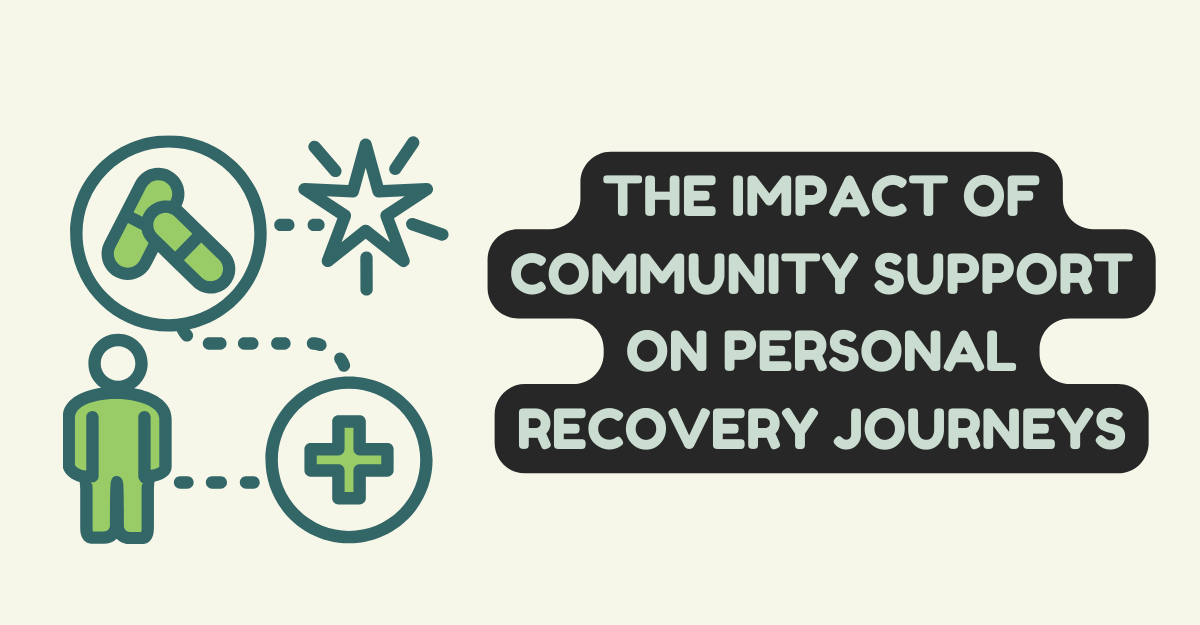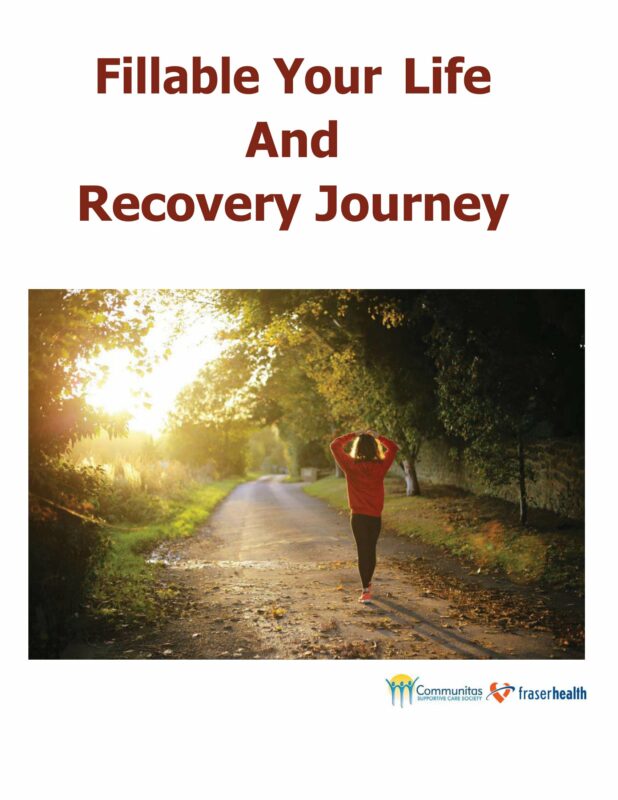Life is a rollercoaster, and sometimes we all hit bumps that leave us feeling like we’re stuck in the trenches. But here’s the thing—your recovery journey updates can be the light at the end of the tunnel. Whether you’re recovering from a physical injury, emotional trauma, or just trying to get back on track, this journey is about reclaiming your power and finding peace. And trust me, it’s not just about surviving—it’s about thriving.
Let’s face it, recovery isn’t easy. It’s messy, unpredictable, and sometimes feels like two steps forward and one step back. But the good news? You’re not alone. Millions of people around the world are on their own recovery journeys, and they’re learning, growing, and healing along the way. This article is your roadmap to navigating your personal recovery journey updates, no matter where you are in the process.
We’ll dive deep into what recovery truly means, how to track your progress, and the tools you need to make meaningful changes. So, buckle up because this is going to be a ride filled with insights, tips, and a whole lot of heart. Ready to take the first step? Let’s go!
Read also:Astrid Wett Nudes The Truth Behind The Clickbait Debunked
What Does Recovery Journey Updates Mean?
Before we dive into the nitty-gritty, let’s talk about what recovery journey updates actually mean. At its core, recovery is about healing—whether it’s physical, emotional, or mental. But it’s not just about bouncing back; it’s about becoming better than you were before. Think of it as upgrading your life software, one line of code at a time.
Defining Recovery
Recovery isn’t just about fixing what’s broken. It’s about embracing who you are, where you’ve been, and where you’re headed. For some, it might mean recovering from an injury or illness. For others, it could be overcoming addiction, grief, or trauma. Whatever your situation, recovery is about progress, not perfection.
And here’s the kicker—recovery journey updates are the milestones you hit along the way. They’re the little wins that remind you you’re moving forward, even when it feels like you’re standing still.
Why Are Recovery Journey Updates Important?
Tracking your recovery journey updates is crucial because it helps you stay motivated and focused. When you’re in the thick of it, it’s easy to lose sight of how far you’ve come. But by documenting your progress, you can see the bigger picture and celebrate those hard-earned victories.
- They provide a sense of accomplishment.
- They help you identify patterns and areas for improvement.
- They keep you accountable to your goals.
Understanding the Different Types of Recovery
Not all recovery journeys are created equal. Depending on what you’re recovering from, your path might look vastly different from someone else’s. Let’s break down the main types of recovery and how they impact your journey updates.
Physical Recovery
If you’re recovering from an injury or surgery, physical recovery is all about healing your body. This might involve physical therapy, exercise, or even just resting and letting your body do its thing. Recovery journey updates here might include things like increased mobility, reduced pain, or hitting specific fitness goals.
Read also:Molly Eskam Onlyfans Leaks The Untold Story Behind The Headlines
Emotional Recovery
Emotional recovery is all about healing your heart and mind. Whether you’re dealing with grief, heartbreak, or anxiety, this type of recovery focuses on processing your emotions and building resilience. Your recovery journey updates might include things like feeling more at peace, improving your relationships, or developing healthier coping mechanisms.
Mental Recovery
Mental recovery is about healing your mind and improving your mental health. This might involve therapy, medication, or self-care practices. Recovery journey updates here might include things like better sleep, reduced anxiety, or increased self-awareness.
Tracking Your Recovery Journey Updates
Now that we’ve talked about what recovery journey updates are, let’s talk about how to track them. Keeping a record of your progress is essential for staying motivated and seeing how far you’ve come. Here are some ways to do it:
Journaling
Journaling is one of the easiest and most effective ways to track your recovery journey updates. Write down how you’re feeling, what you’ve accomplished, and any challenges you’ve faced. Over time, you’ll be able to look back and see how much you’ve grown.
Using Apps
There are tons of apps out there designed to help you track your recovery journey updates. From fitness trackers to mental health apps, these tools can help you stay organized and motivated. Some popular options include:
- Headspace for mindfulness
- MyFitnessPal for fitness tracking
- BetterHelp for mental health support
Creating a Vision Board
A vision board is a visual representation of your goals and aspirations. By creating one, you can keep your recovery journey updates front and center. Include pictures, quotes, and anything else that inspires you to keep moving forward.
Overcoming Common Challenges in Recovery
Let’s be real—recovery isn’t always sunshine and rainbows. There are bound to be challenges along the way, but the key is how you handle them. Here are some common obstacles you might face and how to overcome them:
Staying Motivated
Motivation can be hard to come by, especially when you’re in the middle of a tough recovery. The key is to set small, achievable goals and celebrate every win, no matter how small. You got this!
Dealing with Setbacks
Setbacks are a natural part of the recovery process. Instead of getting discouraged, use them as learning opportunities. Ask yourself what went wrong and how you can do better next time.
Building a Support System
You don’t have to go through recovery alone. Surround yourself with people who lift you up and support your journey. Whether it’s friends, family, or a therapist, having a strong support system can make all the difference.
Tools and Resources for Your Recovery Journey
There are tons of tools and resources out there to help you on your recovery journey. From books to podcasts to online communities, the options are endless. Here are a few of our favorites:
Books
Books can be a powerful tool for recovery. Some great options include:
- "Man’s Search for Meaning" by Viktor E. Frankl
- "The Gifts of Imperfection" by Brené Brown
- "Unbroken" by Laura Hillenbrand
Podcasts
Podcasts are a great way to learn and stay inspired. Some popular recovery-focused podcasts include:
- The Mindful Kind
- The Recovery Warrior
- Therapy for Black Girls
Online Communities
Online communities can provide a sense of belonging and support. Some great options include:
- Reddit’s r/recovery
- The Mighty
- 7 Cups
Setting Realistic Goals for Your Recovery Journey Updates
Setting goals is an essential part of any recovery journey. But here’s the thing—your goals need to be realistic and achievable. Setting unrealistic expectations can lead to disappointment and frustration. Instead, focus on setting SMART goals—Specific, Measurable, Achievable, Relevant, and Time-bound.
Examples of SMART Goals
Here are a few examples of SMART goals for your recovery journey updates:
- Exercise for 30 minutes, three times a week.
- Practice mindfulness for 10 minutes every day.
- Attend one therapy session per week.
Seeking Professional Help
Sometimes, recovery can feel overwhelming, and that’s okay. Seeking professional help is a sign of strength, not weakness. Whether it’s a therapist, counselor, or coach, having someone to guide you through the process can make all the difference.
How to Find the Right Professional
Finding the right professional can be tricky, but here are a few tips:
- Ask for referrals from friends or family.
- Check their credentials and experience.
- Schedule a consultation to see if you’re a good fit.
Maintaining Progress After Recovery
Recovery isn’t just about getting better—it’s about staying better. Once you’ve made progress, it’s important to maintain it. Here are a few tips for keeping your recovery journey updates on track:
Staying Consistent
Consistency is key when it comes to maintaining progress. Stick to your routine, even when things get tough. Remember, every small effort counts.
Practicing Self-Care
Self-care is essential for long-term recovery. Make time for activities that make you feel good, whether it’s reading, meditating, or spending time with loved ones.
Reevaluating Goals
As you progress, it’s important to reevaluate your goals and adjust them as needed. What worked for you in the beginning might not work for you now, and that’s okay.
Conclusion: Your Recovery Journey Updates Matter
Recovery isn’t a destination—it’s a journey. And every step you take, no matter how small, is progress. By tracking your recovery journey updates, setting realistic goals, and seeking support when needed, you can create a life filled with purpose and meaning.
So, what’s next? Take a moment to reflect on where you are in your recovery journey and what steps you can take today to move forward. And remember—you’re not alone. Millions of people around the world are on their own recovery journeys, and they’re here to support you every step of the way.
Leave a comment below and let us know what your biggest recovery challenge has been and how you’ve overcome it. And don’t forget to share this article with someone who might need it. Together, we can create a community of healing and growth.
Table of Contents
- What Does Recovery Journey Updates Mean?
- Understanding the Different Types of Recovery
- Tracking Your Recovery Journey Updates
- Overcoming Common Challenges in Recovery
- Tools and Resources for Your Recovery Journey
- Setting Realistic Goals for Your Recovery Journey Updates
- Seeking Professional Help
- Maintaining Progress After Recovery
- Conclusion: Your Recovery Journey Updates Matter


